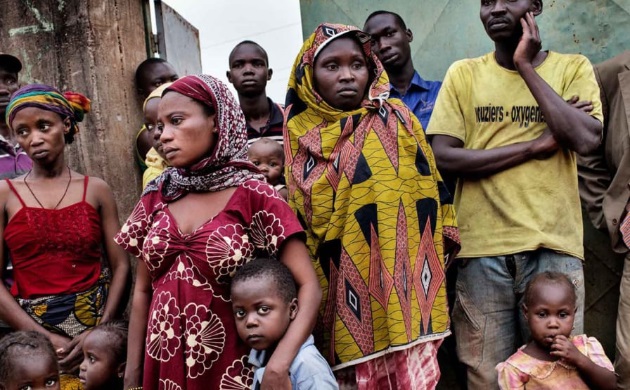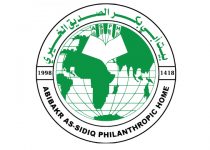Festive Period Assistance
We provide sense of belonging to vulnerable Muslims during Islamic festive periods by making available foods and other materials that would make them fulfill their Islamic obligations conveniently.

Ramadan
This is a holy time when over one billion Muslims around the world fast and focus their attention on giving to charity. During Ramadan, both fasting and acts of charity are obligatory upon Muslims who are able to do so. At the Home, we feed over 1 million people during the month of Ramadan. As the holy month of Ramadan falls upon us every year, the Home makes sure that as well as providing food aid throughout the year, we make sure that deprived families in Ramadan have the food they need in Ramadan to help combat poverty and nutritional deficiency. During Ramadan, orphans, widows and needy people without any source of income struggle to buy the food they need. To help alleviate this problem, the home distributes a comprehensive Ramadan nutritional package to orphans, widows, elderly and the needy. The Home also organizes on a daily basis iftar for indigent Muslims in various locations across West Africa. We welcome donations and support from like-minded organisations and individuals.
Eid el-fitr
In the Home, on the day of Eid we make provision of cooked food for everyone regardless of their religion. Since it’s a celebration we believe everyone should enjoy the feel that its Eid and it is also a celebration of love. We welcome support from everybody so that we can feed people together.
- Provision of clothes for Eid – $21 per head
- Support our Eid Day Feeding program – $10 per head
Eid ul-adha (Qurbani)
The Home gives out 3000 cattle to the poor people every year for them to be able to fulfil their obligations as Muslims and also making sure that the poor does not think they’re being discriminated upon because of their status. ‘The Prophet (saw) sacrificed for the one who could not sacrifice from his ummah, one who bore witness to the Oneness of Allah and [his] Prophethood’. (Ahmad) The Home tries to give the right to be like others and not be envious of those who can enjoy Eid without worrying about food. It is not good for the believer, despite their poverty, to be envious’. The home welcomes outside support of all kinds from people of like minds and organisations driven by the principles to help the needy.
- Buy a Sheep for a family $50
- Buy a Ram for a group of 10 people $120
- Buy a cow for a small village $220
- Support our Eid day Feeding Program – $10 per head
Zakat ul Fitr
The Home before Eid prayer after Ramadan every year distributes Zakat al-Fitr exclusively to orphans,widows, and less privileged so that they can be fed on Eid day. Zakat al-Fitr is obligatory upon every member of your household, including children and the elderly. Ibn `Abbas (may Allah be pleased with him) reported: “The Messenger of Allah (peace be upon him) ordained Zakat ul Fitr to purify the fasting person from indecent words or actions, and to provide food for the needy. It is accepted as zakah for the person who gives it before the Eid prayer; but it is a mere sadaqah for the one who gives it after the prayer.” [Abu Dawud and Ibn Majah].
Who can receive Zakat?
Zakat can only be paid to specific beneficiaries and projects. The Qur’an mentions eight groups of people on who Zakat should be spent:
- (Surat At-Tawbah 9:60)
- The Fuqara’ (the poor) Al-Maskin (the needy)
- Aamileen (Zakat collector)
- Muallafatul Quloob (poor and needy who recently converted to Islam)
- Ar-Riqaab (slaves; Zakat can be used to purchase their freedom)
- Ibnus-Sabeel: A stranded traveller in need of financial assistance.
- Al Ghaarimeen: A debtor
- Fi Sabeelillah: Those who are away from home in the path of Allah
